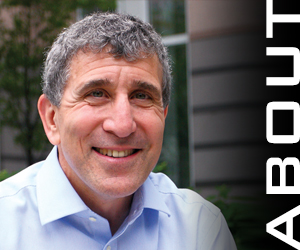Today's CPA | Spring 2018
Is Anyone Listening?
If you think gaining influence and making decisions in your organization is hard, you’re not alone.

Todd Shapiro
ICPAS President & CEO
Inside Insights From the CEO
I learned early on in my career just how challenging, and sometimes
frustrating, the decision-making process can be. Seemingly
ages ago, as a manager at Quaker Oats, I attended an influence
management seminar put on by my employer at the time.
Throughout the seminar the instructors coached us on various
ways to influence others. Shortly after, I was in a meeting with my
division president discussing which way to go on a business issue,
which seemed like a good time to test my new influencing skills.
I was utilizing all the methods taught to me during the seminar
when my boss stopped me and said, “We’re doing it my way,
because I’m on this side of the desk, and you’re on that side of the
desk.” That experience has stayed with me to this day.
Making decisions “because I said so” or “because I’m the boss”
not only risks making poor choices, it risks losing the support of
those implementing or impacting the outcome. From firsthand
experience, I can tell you nothing breaks the spirit of staff more
than being faced with those words. Likewise, nothing encourages
and empowers staff more than feeling like an influential part of the
decision-making process.
Every day, in every organization, countless decisions are made.
Some are small, and some are critical to the life blood of the
organization, literally setting the direction of the culture and future
of the business. I often tell my staff that it’s not necessarily most
important who makes the final decisions but whether you had a
seat at the table to influence the outcomes.
So, how does one become an influencer? Just as I stress that in
most situations there’s no single “right” answer, there’s no single
method to gaining influence. Rather, influence grows and
becomes most powerful when backed by knowledge, experience,
and command of compelling data and information (I’m a strong
believer in data-based decision-making).
We must stop mistakenly thinking of influencers only as the people
already “in charge.” Being influential and influencing decisions is
not just the purview of experienced, long-term staff, or the partners,
CEOs, CFOs, and other executives; the reality is, we all have
a responsibility and desire to be influencers. Young professionals,
especially, need to embrace the mindset of becoming influential
and decision-makers in organizations (this will be the theme of this
year’s Young Professional Leadership Conference).
Stop and look at the world around us. At the end of the day, I want
you to ask yourself if you’re going to be an influencer or stay on
the sidelines. Being an influencer and, ultimately, a decision-maker,
comes with great responsibility. I encourage you to step up
and take it. We need more positive and innovative influencers and
decision-makers in our profession.